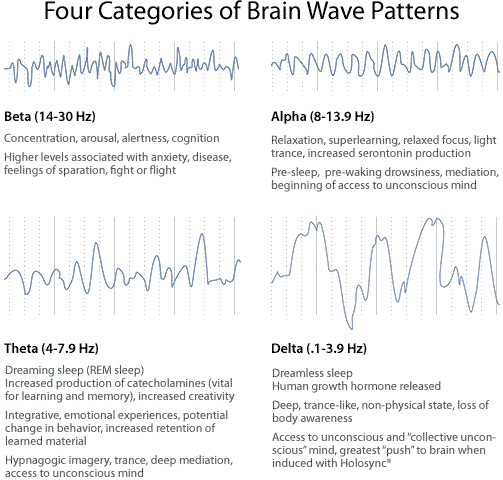|
Listen while working
Getting your Trinity Audio player ready...
|
وَإِذَا سَمِعُوا مَا أُنزِلَ إِلَى الرَّسُولِ تَرَىٰ أَعْيُنَهُمْ تَفِيضُ مِنَ الدَّمْعِ مِمَّا عَرَفُوا مِنَ الْحَقِّ يَقُولُونَ رَبَّنَا آمَنَّا فَاكْتُبْنَا مَعَ الشَّاهِدِين
And when they listen to the revelation received by the Messenger, thou wilt see their eyes overflowing with tears, for they recognise the truth: they pray: “Our Lord! We believe; write us down among the witnesses (Al Quran Al Maidah 5:83)
Our brain is undoubtedly the epic of creation of Allah in human body. It is made up of billions of brain cells called neurons, which gather information from all over the body through electrical pulses conducting through an extensive network of nerves. Our brain is in state of constant development and changes from birth till death. It controls each and every aspect of our cognitive functions. Our brain is influenced by a number of things around us which evolves specific traits in individuals, the most common of which are physical ones our parents, schools, teachers, friends, relatives and everyone around us has a profound effect in our development. Additionally there are other factors which affect our brain in different ways.
The electrical impulses generated in brain are being extensively studied since the invention of Electroencephalography (EEG) in 1924 by Hans Berger a German psychiatrist. EEG denotes a method to record electrical activity of the brain, with different electrodes placed along the regions of scalp, this is then augmented and converted to a graph called as brainwave pattern. These patterns are generally categorized as:

Extensive studies have been conducted historically to understand the effects of different sound frequencies on our brain and their resultant expression in life.
Since 2006, two UCF professors — neuroscientist Kiminobu Sugaya and world-renowned violinist Ayako Yonetani — have been teaching one of the most popular courses in The Burnett Honors College. “Music and the Brain” explores how music impacts brain function and human behavior, including by reducing stress, pain and symptoms of depression as well as improving cognitive and motor skills, spatial-temporal learning and neurogenesis, which is the brain’s ability to produce neurons. Sugaya and Yonetani teach how people with neurodegenerative diseases such as Alzheimer’s and Parkinson’s also respond positively to music. (University of Central Florida)
Current researches by Harvard Health publishing’s show a very positive effect of music on human brain. The most highly publicized mental influence of music is the “Mozart effect.” Struck by the observation that many musicians have unusual mathematical ability, researchers at the University of California, Irvine, investigated how listening to music affects cognitive function in general, and spatial-temporal reasoning in particular. Experiments conducted by them show increase in IQ points listening to Mozart’s Sonata in D major for Two Pianos, K488.
A number of other filed studies have shown a positive impact of music, more specifically explicit composition of notes which can positively affect the human body in relieving stress, and alleviation of mood. Some other studies also suggested a better recovery rate of stroke patients.
Specific brainwave states can be tapped-into to affect our mood, health and healing. Frequencies occur in a range of wavelengths that include Beta, Alpha, Theta, and Delta. Each of these frequencies affects us in a specific manner. For instance, it has been proven that the Theta sound frequency inspires fantasy, imagery and creativity while the Alpha frequency can invoke relaxation, tranquility and inward awareness.
Sound frequencies in music can also affect our hormones and are capable of triggering a release of endorphins, which act as our feel good chemicals that relieve stress and strengthen our immune system. Such results give strength to the Hz tuning theory that claims that certain frequencies are mathematically consistent with the frequencies of our universe. The magical Hertz tuning number is 432Hz.
In additional to the effects of sound on human body there are a number of researches showing a positive effect of sound frequencies on development of plants.
Dr. Masaru Emoto a Japanese scientist who is one of the pioneer of research on water and author of many books e.g. “The message from water”, tried to explore a unique concept of water which he termed as crystalline memory of water. According to this theory water stores the memory of the events happening around in the form of crystals. It not only responds to sounds and events around it but also to the words pasted on bottle containing water and the response is depicted in the form of different forms and shapes of crystals, some beautiful (positive) and some disordered (negative).
He performed extensive experiments on ZamZam water which was published in his book “Messages from Water” showing a unique structure of crystals. He also concluded the effects of different words including “Bismillah” and other Quranic verses with changes in structure of ice crystals of water.
The eventual result from all these studies clearly portrays, the effects of sounds around us having a profound effect on our brain, and are manifested in our expressions. Quran being the final revelation from Allah explicitly provides specific healing and purification, of our souls as well as our bodies.
Healing effect of Al Quran
وَنُنَزِّلُ مِنَ الْقُرْآنِ مَا هُوَ شِفَاءٌ وَرَحْمَةٌ لِّلْمُؤْمِنِينَ وَلَا يَزِيدُ الظَّالِمِينَ إِلَّا خَسَارً
We send down (stage by stage) in the Quran that which is a healing and a mercy to those who believe: to the unjust it causes nothing but loss after loss (Al Quran, Al-Israa’ 17:82)
Islam being a complete DEEN also provides a comprehensive guideline for a healthy life, reflecting in various Islamic observes such as fasting, prayers, and emotional attitudes. These combined with specific items that were mentioned as having a healing effect including honey, black seed and many fruits and vegetables, all have two things in common. One is that the effect deals with the underlying disease mechanism, such as an immune deficiency or dysfunction rather than dealing with the superficial symptoms. The second feature is that the therapeutic effect is restorative in nature, regardless of direction of the abnormality.
وَإِذَا مَرِضْتُ فَهُوَ يَشْفِينِ
And when I am ill, it is [Allah] who cures me. (Al Quran 26:80)
The direct healing effect of the Quran: Recitation of the Quran by the ill or for the ill (ruqya) has shown to have a direct healing effect. This most likely uses the medical benefits of echo. Prayers and Healing
Listening to the recitation of the Holy Quran has been shown in a study conducted by Dr. Ahmed E. Kadi and his associates to lower blood pressure, heart rate, and to cause smooth muscle relaxation in Muslim Arabs, non-Arab Muslims and even in non-Muslims.? It is postulated that the echo target of? Alif Lam Meem? (the first three words of Surat Al-Baqarah-the 2nd chapter of the Quran) is in the heart and that of Ya-seen (chapter 36) is in the pituitary gland of the brain.
An extensive study conducted by Ashraf Ghiasi and Afsaneh Keramat was published in Iranian Journal of Nursing and Midwifery Research in 2018 “The Effect of Listening to Holy Quran Recitation on Anxiety: A Systematic Review” and archived in US National Library of Medicine, National Institutes of Health, has shown remarkable effects of Quran recitation. The main conclusions are as follows
Anxiety before exams in students
A study performed by Ghorbani et al. demonstrated that listening to the Quran recitation significantly reduced the anxiety level in the intervention group compared with the control group. The research of Qasemtabar et al. confirmed the results of study by Ghorbani et al. A study by Heidari and Shahbazi showed that anxiety level in nursing and emergency medicine students was significantly lower during exams with Quran recitation than the exams without it. A study by Masoumy et al. on the medical students’ test anxiety revealed that Quran recitation was significantly more effective than music sound. Moreover, Ramazani et al., in a quasi-experimental study, stated that Quran recitation was effective in reducing pre-test anxiety level of medical sciences students.
Anxiety in medical sciences students before entering the clinical practice
Findings of the study performed by Pour Dehkordi et al. indicated that both relaxation muscle therapy and listening to Holy Quran recitation along with reciting God’s name were effective on reducing anxiety level of nursing students before entering the clinical practice.
Anxiety in athletes
Mottaqhi, et al. in their study stated that Quran recitation significantly reduced anxiety level of female university athletes. Another study by Aghamohamadi et al. showed that female university athletes who listened to Quran recitation had lower anxiety level than the control group but this difference was not statistically significant.
Anxiety in prisoners
Akbari et al. assessed the effect of Quran recitation on prisoners’ anxiety. They found that intervention group had significantly lower anxiety level than the control group.
Anxiety during pregnancy
Study by Jabbari et al. on 168 pregnant women showed significant reduction in anxiety level of both intervention groups, one that listened to Quran recitation with translation and another that listened to Quran recitation without translation, when compared with the control group.
Anxiety in first stage of labor
Sahmeddini et al. reported in their study that listening to the recitation of the Holy Quran during the active phase of labor had a positive effect in reducing anxiety.
Anxiety in patients hospitalized in the intensive care units
Study conducted by Khatooni showed that listening to the recitation of the Holy Quran had a positive effect in reducing anxiety level of patients hospitalized in the cardiac care units. A study performed by Najafi et al. showed that listening to Holy Quran recitation along with lavender aromatherapy was effective in reducing anxiety level of patients suffering from myocardial infarction.
Anxiety before invasive procedures
In the study by Nikbakht Nasrabadi et al., it was found that listening to Holy Quran recitation had a positive effect on lowering the level of anxiety among patients hospitalized for invasive procedures. Tajvidi et al. found that Holy Quran recitation was effective in reducing patients’ anxiety before open heart surgery; this had been confirmed by the research of Ildarabadi et al. A study by Heidari and Shahbazi showed that listening to Quran was more effective in reducing anxiety before endoscopy procedure than listening to instrumental music. Babaii et al. in their study found that Holy Quran recitation decreased patients’ anxiety before cardiac catheterization. Mirsane et al. demonstrated that listening to Quran recitation and its translation could reduce patients’ anxiety before general surgery. Atari et al. demonstrated that listening to Holy Quran recitation decreased the anxiety score of patients before anesthesia induction. Another study by Shafiei et al. on patients’ anxiety before induction of general anesthesia indicated that Holy Quran recitation with translation was significantly more effective than the same without translation.
Results of Majidi’s study showed the positive effect of listening to Holy Quran in reducing anxiety level of patients hospitalized for angiography. In another study, Babamohamadi et al. found that listening to Holy Quran recitation had a positive effect in reducing anxiety of patients undergoing hemodialysis. Mirbagher Ajorpaz et al. found that both Quran recitation and instrumental music significantly reduced anxiety level of patients before abdominal surgery. A study by Sharafi indicated that Holy Quran recitation compared with the Arabic music had a positive effect in lowering patient’s anxiety before lithotripsy. Sharifi et al. reported in their study that both Quran recitation and instrumental music reduced anxiety score of women before cesarean section. However, the recitation of Holy Quran was significantly more effective. Allameh et al. indicated the positive effect of Quran recitation in reducing anxiety score of women undergoing cesarean section, this had been confirmed by the research of Mirbagher Ajorpaz and Ranjbar.
حَدَّثَنِي أَحْمَدُ بْنُ أَبِي رَجَاءٍ، حَدَّثَنَا النَّضْرُ، عَنْ هِشَامِ بْنِ عُرْوَةَ، قَالَ أَخْبَرَنِي أَبِي، عَنْ عَائِشَةَ، أَنَّ رَسُولَ اللَّهِ صلى الله عليه وسلم كَانَ يَرْقِي يَقُولُ “ امْسَحِ الْبَاسَ رَبَّ النَّاسِ، بِيَدِكَ الشِّفَاءُ، لاَ كَاشِفَ لَهُ إِلاَّ أَنْتَ ”.
Narrated `Aisha: Allah’s Messengerﷺ used to treat with a Ruqya saying, “O the Lord of the people! Remove the trouble The cure is in Your Hands, and there is none except You who can remove it (the disease) (Sahih Al Bukhari 5744)
وَقَالَ عُثْمَانُ بْنُ الْهَيْثَمِ حَدَّثَنَا عَوْفٌ، عَنْ مُحَمَّدِ بْنِ سِيرِينَ، عَنْ أَبِي هُرَيْرَةَ ـ رضى الله عنه ـ قَالَ وَكَّلَنِي رَسُولُ اللَّهِ صلى الله عليه وسلم بِحِفْظِ زَكَاةِ رَمَضَانَ فَأَتَانِي آتٍ فَجَعَلَ يَحْثُو مِنَ الطَّعَامِ فَأَخَذْتُهُ فَقُلْتُ لأَرْفَعَنَّكَ إِلَى رَسُولِ اللَّهِ صلى الله عليه وسلم فَقَصَّ الْحَدِيثَ فَقَالَ إِذَا أَوَيْتَ إِلَى فِرَاشِكَ فَاقْرَأْ آيَةَ الْكُرْسِيِّ لَنْ يَزَالَ مَعَكَ مِنَ اللَّهِ حَافِظٌ وَلاَ يَقْرَبُكَ شَيْطَانٌ حَتَّى تُصْبِحَ. وَقَالَ النَّبِيُّ صلى الله عليه وسلم “ صَدَقَكَ وَهْوَ كَذُوبٌ ذَاكَ شَيْطَانٌ ”.
Narrated Abu Huraira: Allah’s Messengerﷺ ordered me to guard the Zakat revenue of Ramadan. Then somebody came to me and started stealing from the foodstuff. I caught him and said, “I will take you to Allah’s Messengerﷺ!” Then Abu Huraira described the whole narration and said: That person said (to me), “(Please don’t take me to Allah’s Messengerﷺ and I will tell you a few words by which Allah will benefit you.) When you go to your bed, recite Ayat-al-Kursi, (2.255) for then there will be a guard from Allah who will protect you all night long, and Satan will not be able to come near you till dawn.” (When the Prophetﷺ heard the story) he said (to me), “He (who came to you at night) told you the truth although he is a liar; and it was Satan.” (Sahih Al Bukhari 5010)
حَدَّثَنَا قُتَيْبَةُ، حَدَّثَنَا عَبْدُ الْعَزِيزِ بْنُ مُحَمَّدٍ، عَنْ سُهَيْلِ بْنِ أَبِي صَالِحٍ، عَنْ أَبِيهِ، عَنْ أَبِي هُرَيْرَةَ، أَنَّ رَسُولَ اللَّهِ صلى الله عليه وسلم قَالَ “ لاَ تَجْعَلُوا بُيُوتَكُمْ مَقَابِرَ وَإِنَّ الْبَيْتَ الَّذِي تُقْرَأُ فِيهِ الْبَقَرَةُ لاَ يَدْخُلُهُ الشَّيْطَانُ ” . قَالَ أَبُو عِيسَى هَذَا حَدِيثٌ حَسَنٌ صَحِيحٌ
Narrated Abu Hurairah: that the Messengerﷺ of Allah said: “Do not turn your houses into graves. Indeed Ash-Shaitan does not enter the house in which Surat Al-Baqarah is recited.” (Jami at-Tirmidhi Vol. 5, Book 42, Hadith 2877, Grade: Sahih-Darussalam)
حَدَّثَنِي سِيدَانُ بْنُ مُضَارِبٍ أَبُو مُحَمَّدٍ الْبَاهِلِيُّ، حَدَّثَنَا أَبُو مَعْشَرٍ الْبَصْرِيُّ ـ هُوَ صَدُوقٌ ـ يُوسُفُ بْنُ يَزِيدَ الْبَرَّاءُ قَالَ حَدَّثَنِي عُبَيْدُ اللَّهِ بْنُ الأَخْنَسِ أَبُو مَالِكٍ، عَنِ ابْنِ أَبِي مُلَيْكَةَ، عَنِ ابْنِ عَبَّاسٍ، أَنَّ نَفَرًا، مِنْ أَصْحَابِ النَّبِيِّ صلى الله عليه وسلم مَرُّوا بِمَاءٍ فِيهِمْ لَدِيغٌ ـ أَوْ سَلِيمٌ ـ فَعَرَضَ لَهُمْ رَجُلٌ مِنْ أَهْلِ الْمَاءِ فَقَالَ هَلْ فِيكُمْ مِنْ رَاقٍ إِنَّ فِي الْمَاءِ رَجُلاً لَدِيغًا أَوْ سَلِيمًا. فَانْطَلَقَ رَجُلٌ مِنْهُمْ فَقَرَأَ بِفَاتِحَةِ الْكِتَابِ عَلَى شَاءٍ، فَبَرَأَ، فَجَاءَ بِالشَّاءِ إِلَى أَصْحَابِهِ فَكَرِهُوا ذَلِكَ وَقَالُوا أَخَذْتَ عَلَى كِتَابِ اللَّهِ أَجْرًا. حَتَّى قَدِمُوا الْمَدِينَةَ فَقَالُوا يَا رَسُولَ اللَّهِ أَخَذَ عَلَى كِتَابِ اللَّهِ أَجْرًا. فَقَالَ رَسُولُ اللَّهِ صلى الله عليه وسلم “ إِنَّ أَحَقَّ مَا أَخَذْتُمْ عَلَيْهِ أَجْرًا كِتَابُ اللَّهِ ”.
Narrated Ibn `Abbas: Some of the companions of the Prophetﷺ passed by some people staying at a place where there was water, and one of those people had been stung by a scorpion. A man from those staying near the water, came and said to the companions of the Prophet, “Is there anyone among you who can do Ruqya as near the water there is a person who has been stung by a scorpion.” So one of the Prophet’s companions went to him and recited Surat-al-Fatiha for a sheep as his fees. The patient got cured and the man brought the sheep to his companions who disliked that and said, “You have taken wages for reciting Allah’s Book.” When they arrived at Medina, they said, ‘ O Allah’s Messengerﷺ! (This person) has taken wages for reciting Allah’s Book” On that Allah’s Messengerﷺ said, “You are most entitled to take wages for doing a Ruqya with Allah’s Book.” (Sahih Al Bukhari 5737)
حَدَّثَنَا عَبْدُ اللَّهِ بْنُ يُوسُفَ، حَدَّثَنَا اللَّيْثُ، قَالَ حَدَّثَنِي عُقَيْلٌ، عَنِ ابْنِ شِهَابٍ، أَخْبَرَنِي عُرْوَةُ، عَنْ عَائِشَةَ ـ رضى الله عنها أَنَّ رَسُولَ اللَّهِ صلى الله عليه وسلم كَانَ إِذَا أَخَذَ مَضْجَعَهُ نَفَثَ فِي يَدَيْهِ، وَقَرَأَ بِالْمُعَوِّذَاتِ، وَمَسَحَ بِهِمَا جَسَدَهُ.
Narrated `Aisha: Whenever Allah’s Messengerﷺ went to bed, he used to blow on his hands while reciting the Mu’auwidhat ( i.e. Suratal-Falaq 113 and Surat-an-Nas 114) and then pass his hands over his body. (Sahih Al Bukhari 6319)
وَإِذَا قُرِئَ الْقُرْآنُ فَاسْتَمِعُوا لَهُ وَأَنصِتُوا لَعَلَّكُمْ تُرْحَمُون
And when is recited the Quran, then listen to it and pay attention so that you may receive mercy. (Al Quran Al Aaraf 7:204)
Notable study
The effect of listening to the recitation of Qur’an (Murottal Ar-Rahman surah) on the level of anxiety of pregnant women in Siti Fatimah maternal and child hospital by Irmawati, Veni Hadju, Saidah Syamsuddin, Andi Imam Arundhana
“Effects of Quran listening and music on electroencephalogram brain waves”, Mudhir S. Shekha, Abdullah O. Hassan, Safin A. Othman, published in The Egyptian Society of Experimental Biology
“Effect of Exposure to Quran Recitation on Cell Viability, Cell Migration, and BCL2L12 Gene Expression of Human Prostate Adenocarcinoma Cell Line in Culture” Ali Mehrafsar, Mohammad Javad Mokhtari, Department of Biology, Zarghan Branch, Islamic Azad University, Zarghan, Iran has shown some interesting effects of Quran recitation of cytotoxic cells reduction.
“Mental and Spiritual Relaxation by Recitation of the Holy Quran” Nawsher Khan, Noraziah bt Ahmad, A.H. Beg, M.A.I. Fakheraldin, Ahmed N Abd Alla, Muhammad Nubli
“The Effect of Temporal EEG Signals While Listening to Quran Recitation”, Azian Azamimi Abdullah, and Zainab Omar, School of Mechatronic Engineering.
There are many researches carried, showing substantial effects of Quran recitation and hearing available on Semanticscholar.
Photo by sherif emad from Pexels





